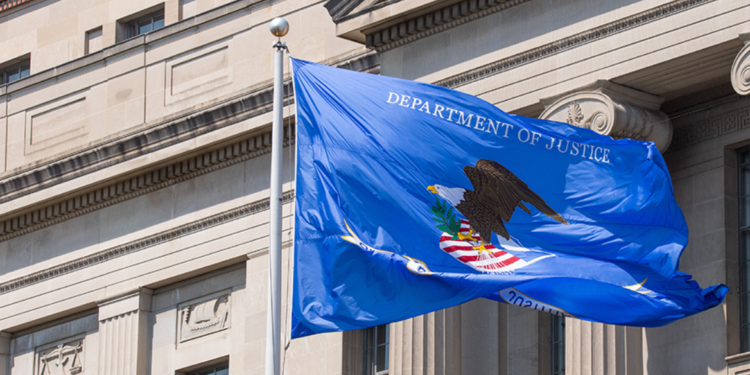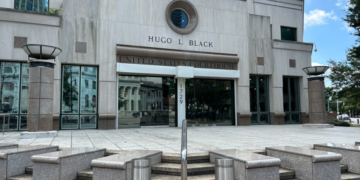May 20, 2025 Story by: Publisher
The U.S. Department of Justice’s Civil Rights Division is undergoing a sweeping transformation under the Trump administration, leading to a historic exodus of career attorneys and a sharp pivot in its mission. Since January 2025, approximately 70% of the division’s attorneys have either resigned, taken deferred resignation, or been reassigned—shrinking the civil enforcement team from about 365 to just over 100.
The upheaval has triggered alarm among civil rights advocates, legal scholars, and former Justice Department officials, who warn that the staffing losses and redirection of priorities are severely undermining the division’s ability to uphold long-standing civil rights protections.
A Shift in Mission Under New Leadership
At the heart of the transformation is Assistant Attorney General Harmeet Dhillon, who assumed leadership of the Civil Rights Division in early 2025. Dhillon, a staunch conservative and former member of the Republican National Committee, has steered the division away from its traditional focus—such as enforcing laws against police misconduct, voting discrimination, and disability rights violations—and toward investigating alleged anti-Christian bias, scrutinizing transgender participation in sports, and challenging diversity, equity, and inclusion (DEI) initiatives.
Internal documents and public statements suggest that the division has also received directives to align its work with executive orders issued by President Trump, many of which aim to reshape how federal agencies approach civil rights.
The Collapsing Voting Section
Perhaps the most stark example of the division’s decline is found in the DOJ’s Voting Section, once a formidable unit tasked with defending federal voting rights. According to internal estimates from Justice Connection, a group supporting the remaining staff within the division, the Voting Section has been reduced to just three attorneys—down from nearly 30 at the start of the year.
Previously led by a chief and seven section managers, the Voting Section now operates without most of its leadership and legal staff. The reduction follows what insiders describe as a systematic dismantling of the team through forced reassignments, retirements, and the deferred resignation program.
The shift in priorities is clear: attorneys have reportedly been told to drop all active voting rights cases and pivot to investigating potential voter fraud, despite scant evidence of such activity nationwide.
Legal Community and Advocates Sound the Alarm
The rapid deterioration of the Voting Section has prompted urgent warnings from legal experts and former DOJ officials.
“This is not a budgetary issue—this is an intentional retreat from the federal government’s responsibility to protect voting rights,” said Justin Levitt, a constitutional law scholar and former deputy assistant attorney general in the Civil Rights Division. Levitt pointed to the reassignment of senior voting section managers as evidence that leadership has no intention of enforcing existing voting laws.
Omar Noureldin, senior vice president of policy and litigation at Common Cause and a former senior counsel to the division, echoed that sentiment. “This assault on the Voting Section is causing profound and lasting damage. It sends a chilling message to both voters and would-be violators: the DOJ is no longer watching,” he said.
Widening Fallout Across the Division
The crisis is not confined to voting rights. Sections tasked with overseeing police reform, disability access, and fair housing have also been depleted. Many career attorneys who remain have reported growing ethical concerns about the direction of their work, fearing they are being asked to pursue politically motivated investigations that conflict with the division’s historic mission.
Internal resistance has surged, with staff citing discomfort and disillusionment over the administration’s new focus and the politicization of enforcement priorities.
Future Uncertain Amid Continued Litigation
Despite the turmoil, the DOJ remains a party in at least 29 voting rights and redistricting cases across 18 states. In all but two of those, private plaintiffs are also involved, meaning litigation may continue even if the DOJ withdraws.
Nevertheless, critics fear the damage has already been done. The division’s weakened capacity could hinder federal oversight in the lead-up to the 2026 midterm elections, particularly in states implementing restrictive voting laws.
Assistant Attorney General Dhillon has stated that new hires will replenish the staff, specifically individuals who align with the administration’s current goals. However, observers warn that replacing seasoned civil rights litigators with ideologically driven appointees will not restore the division’s credibility—or its effectiveness.
A Turning Point for Federal Civil Rights Enforcement
As the Civil Rights Division navigates this period of profound transformation, the long-term implications are coming into focus. With the Biden-era priorities being systematically rolled back and seasoned attorneys leaving in droves, the future of federal civil rights enforcement in the United States hangs in the balance.
“This is the most consequential reorganization of the Civil Rights Division in decades,” said a former DOJ official who requested anonymity. “What’s at stake isn’t just staffing—it’s the soul of the department.”
Source: Democracy Docket / The Guardian / CF Public / NPR

















